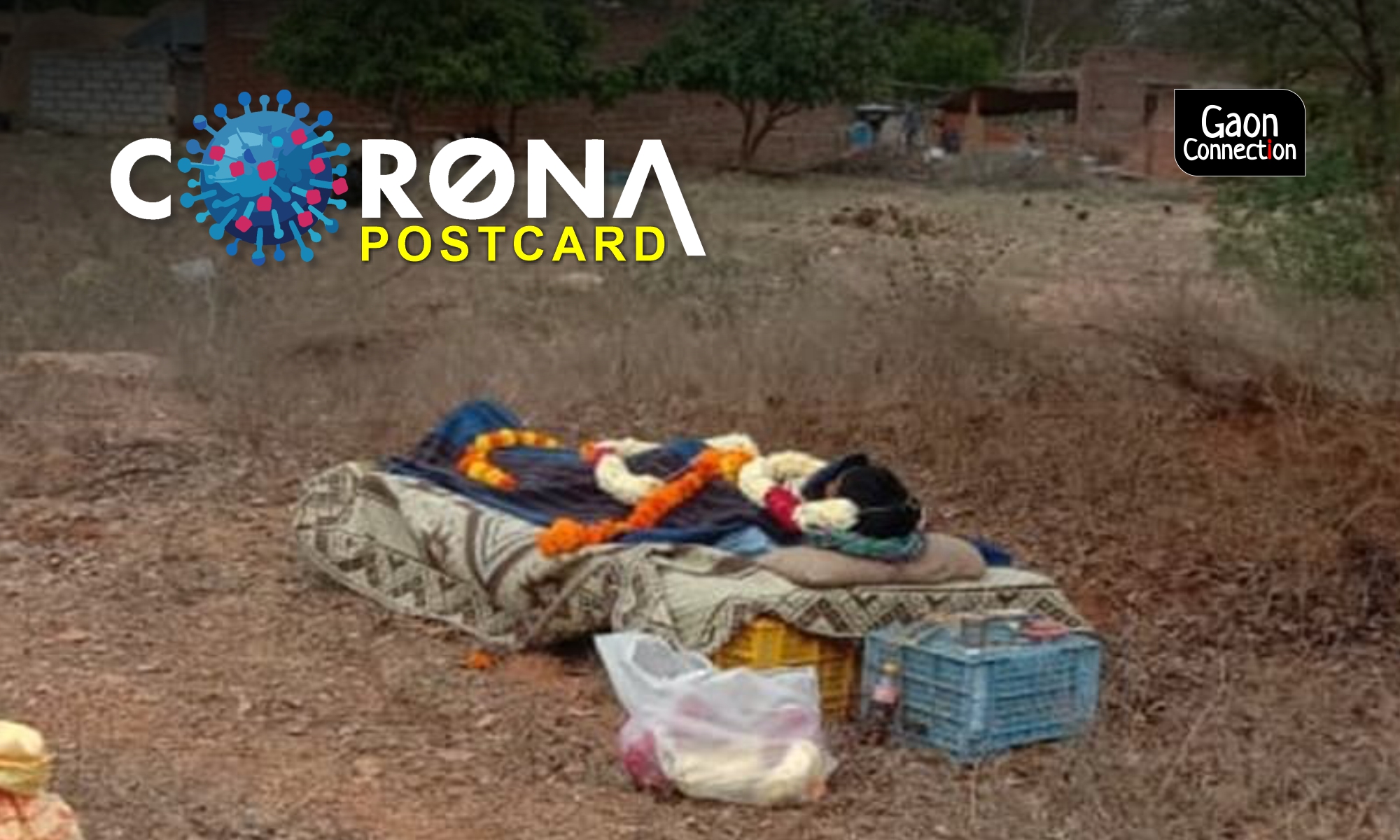On April 27, Hari Prasad, 26, a resident of Meetapalli village in Chittoor, Andhra Pradesh, started walking back to his village from Bengaluru, Karnataka. He walked non-stop for three days. He reached his village after covering a distance of 121 kms, but collapsed on the outskirts of the village. He died while he was being taken to the hospital.
Hari had travelled so far to reach his village, but ironically, his body could not be brought back home for one-and-half-days. The family had to struggle because the villagers suspected he had died due to coronavirus.
Hari wanted to help his parents, both agricultural labourers, financially. So, he learnt how to drive and went 121 kms to Bengaluru to earn a living. However, when the lockdown brought everything to a halt, he wasn’t getting enough food to eat. So, his father advised him to return. Little did he know that his son would instead go so far from where it’s not possible to return.
Mallikarjun (23), the younger brother of Hari, told Gaon Connection over the phone: “He came from Bengaluru on April 27. We had asked him to return if he was facing problems. He walked non-stop for three days. After covering a distance of 121 kms, he arrived in the village on the morning of April 29 and fell unconscious. We called for an ambulance and took him to the hospital. But he died on the way.”
He added: “He was studying at the Industrial Training Institute and had also learnt to drive. He wanted to earn a lot of money. In Bengaluru, sometimes he worked as a construction worker and the other times as a driver, but he ran out of money because of the lockdown.”
After he was declared dead at the hospital, his family returned with his body. But they were stopped by the villagers, so his body was kept on the outskirts of the village. The doctors came and took samples. The report was handed over the next day and it ruled out corona infection. He was finally cremated on April 30.
His brother said: “We were not allowed anywhere near the body. I was constantly protesting that my brother did not have corona, but the villagers were not willing to listen. They said unless the reports said so, they would not allow the body inside the village.”
Zareena Begum, the panchayat chairperson of the Ramsundaram Mandal, informed Gaon Connection over the phone: “The young man died on Wednesday when he was being taken to the hospital. On the same day, he had fainted and fallen outside the village. He was later taken to the hospital where he died. The case came to the light on Tuesday when the villagers did not allow him to be cremated. Later, the team of doctors took a sample of the body and the report was negative. For about one-and-a-half-days, the body was kept outside the village. Most of the people in the family are daily wagers.”
Hari’s 64-year-old father S Aniyappa has a little land in which he cultivates and he also works for others as an agricultural labourer.
When contacted, the district information Officer BK Sudhakar told Gaon Connection over the phone: “When the villagers had not allowed the body, the doctors and the police were present on the spot. The investigation was conducted under their supervision and the report was negative following which the body was handed over to the family on Thursday and the cremation was done. The cause of death is being described as dehydration.”
Ravi Kumar, sub-inspector, Nadipalli, had arrived in the village following Hari’s death. He said: “The villagers had informed us that a labourer had come from outside and they had a suspicion that he died due to corona. Thereupon, I approached the village with the medical team. The villagers asked us to let the body stay till the report comes and that they had no problem with it. Later, when the report came negative, we handed over the body to the kin.”


















